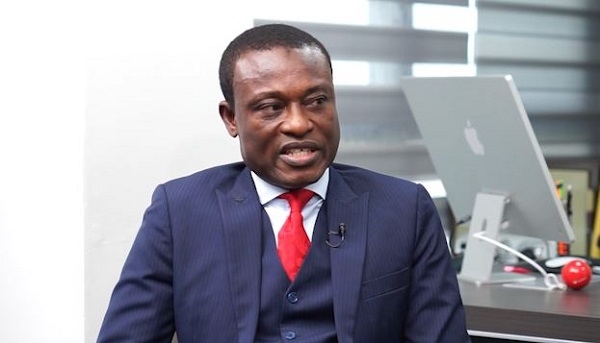The LA Lakers Had to Be Sold
(Bloomberg Opinion) -- Longtime fans of the National Basketball Association couldn’t help but feel a little wistful at the news that the Buss family is selling the Los Angeles Lakers to Guggenheim Partners LLC Chief Executive Officer Mark Walter. The deal, which values the team at a record $10 billion, will almost certainly lead to a better product on the court. But along the way the Lakers will lose some of the personality and flair that 46 years of family ownership brought to the city, its arenas and television screens.
It’s not just the Lakers that is experiencing change. As the cost of owning and operating teams rises, ownership is becoming professionalized. Gone are the owners whose primary asset — and means of occupying time — is the team. In their place are those who view their teams as one more property that must be managed competently. For them, financial acumen, as much as sports knowledge, is the key to winning.
Professional sports in the US date back to the 1860s, at least, and for most of that time, almost nobody considered a team to be a good investment. The biggest source of revenue — tickets — was highly variable, and a losing season could send the entire business into a spiral from which it couldn’t escape.
According to one accounting, 156 professional baseball teams disappeared between 1871 and 1948. Professional basketball, which started later, didn’t exactly shine, either. It lost 23 teams between the NBA and the (defunct) American Basketball Association from 1947 to 1976.
Up until the 1980s, at least, that kind of attrition didn’t hold much appeal to professional investors looking for safe returns. Instead, pro sports often attracted self-described hustlers and promoters who bought in because (usually) they loved a sport or team. With few other assets, they became full-time owner-operators as recognizable as their players.
Jerry Buss, who passed in 2013, was that kind of owner. He was a chemist turned real estate investor who bought the Lakers for $67.5 million in 1979. To get the team, he had to sell off most of his assets. Fully invested, both financially and personally, he quickly turned to making himself and the Lakers the embodiment of cool in Los Angeles. His playboy lifestyle became a part of the Lakers’ and LA’s brand. Celebrities flocked to games, and players — attracted to the spectacle — flocked to the team. Buss, who had a keen eye for talent and a knack for networking, masterfully leveraged the circus into money, attention and championships.
It turned out, however, that he was presiding over an ownership model that was becoming obsolete. The problem was money.
By the 1990s, the NBA and other pro leagues were increasingly awash in media rights deals that could stretch into the billions. That money boosted the value of a team like the Lakers — by 2013, Forbes estimated the franchise was worth $1 billion — but narrowed the number of wealthy individuals who could afford to own and operate it.
These days, it’s unlikely that a wealthy real estate investor could simply liquidate their assets in exchange for a team. Even if they could, it’s unlikely that the NBA would let them because the cost of operating a team has risen, too. In some sports, contracts can be worth upwards of a quarter billion dollars, player amenities — such as the WNBA’s luxe practice facilities — are now the bare minimum to attract star players and stadiums are increasingly self-financed.
That’s a big problem for owners, such as the Buss family, whose primary asset remains their team. While other franchises, flush with even wealthier owners, spend freely, the Lakers have developed a leaguewide reputation for being cheap. And sadly, no amount of ownership charisma or Hollywood glitz can make up for shallow pockets.
What can? In 2023, Mark Cuban, then the primary owner (and showman) of the NBA’s Dallas Mavericks, sold a majority share of the franchise to the families that own casino and resort company Las Vegas Sands Corp. At the time, he noted that to be competitive, “you have to have other sources of revenue.” It also helps to have other types of expertise, especially in gambling and real estate. The NBA’s relationship with the former is already well-established — and it’s poised to grow even further in the coming years. Likewise, when it comes time for a new Mavericks stadium, Sands’ expertise in development will be critical to building.
Walter and his new ownership group don’t lack other sources of revenue, either. In addition to his role at Guggenheim, he’s the owner of the Los Angeles Dodgers, the Los Angeles Sparks, and the Professional Women’s Hockey League, among other sports franchises and media properties. The money and synergies with his other holdings should quickly inject competitiveness into a flagging Lakers franchise.
What won’t be injected is a new, high-profile owner who detracts from his players and the globally-recognized brand. Walter is low-profile and doesn’t seek the spotlight; he places trust and responsibility with his managers and gets out of the way. In sports, at least, this is a decidedly modern way of managing a team. Rather than think simply of his players, fans and media partners, Walter also focuses on his portfolio.
In the new era of pro sports, it’s the only way to win.More From Bloomberg Opinion:
This column reflects the personal views of the author and does not necessarily reflect the opinion of the editorial board or Bloomberg LP and its owners.
Adam Minter is a Bloomberg Opinion columnist covering the business of sports. He is the author, most recently, of “Secondhand: Travels in the New Global Garage Sale.'
More stories like this are available on bloomberg.com/opinion
©2025 Bloomberg L.P.












